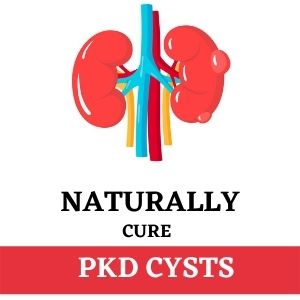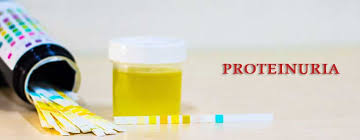An Overview of Kidneys: The Ultimate Multi-Tasking Organs of The Body
Several diseases are considered a point of severity as they have capabilities that can hamper the whole state of the body. The human body runs with a combination of bodily functions, and the internal organs maintain these functions. One of the major organs is the kidneys which are also known as the multi-tasking organs. Kidneys manage a string of crucial functions for the good health and vitality of the human body. They oversee blood pressure levels, manage the basic levels of electrolytes, are responsible for the efficient production of red blood cells and maintain the fluid levels in the body. In simple words, kidneys are the pillars that these duties depend on, or these bean-shaped organs are the overall support of the human body. But another major thing about the kidneys is that they are the holders of common over the filtering and disposing system of the body. They filter the blood accordingly and help the body acquire a purified bloodstream, beneficial for other internal organs. But certain obstructions arise when a kidney disease enters the functioning order of these fist-sized organs - kidneys.
Without healthy kidneys, the body can experience a string of health issues that can also hinder other bodily functions. Kidney diseases differ from each other, but their motive is the same, which is to provide irreparable damage to the kidneys. Some kidney disorders are inherited, and they tend to pass on from one generation to another. The whole game of genetic kidney diseases depends on the defective genes inherited by the children from their carrier (parents). One of the kidney diseases that accounts for the maximum number of cases of the inherited kidney disorder- polycystic kidney disease.
What is Polycystic Kidney Disease?
Polycystic kidney disease is defined as a genetic kidney disorder that is associated with the formation of cysts. It is responsible for causing damage within the functioning and structuring units of the kidneys through the cysts. The cysts associated with polycystic kidney disease have metastasizing abilities and can spread their maliciousness in the entire system of the kidneys.
These cysts are non-cancerous sacs that are round in shape and have fluid inside them. The cysts are not the same in size, they differ, and they can grow up to a tennis ball's size.
Polycystic kidney disease can meddle with other organs also as cysts can develop in your liver and elsewhere in the body. The disease causes extreme outcomes like kidney failure. That is why it needs proper treatment. Pkd treatment in Ayurveda is beneficial in reducing the growth rate of cysts.
What is the nature of PKD cysts?
People often get confused regarding cystic diseases that harm the kidneys. Because kidney cysts and polycystic kidney disease have similarities in their names, their severity differs from each other. Their names are the same, but their motives are different as the cysts of polycystic kidney disease can cause renal enlargement and impaired kidney function through metastasizing. PKD cysts are kidney harming in nature and tend to lead the kidneys towards the verge of malfunctioning. Unlike PKD cysts, simple renal cysts are not kidney hurting and don't cause such complications that hamper the functioning of the kidneys.
The central motive of the PKD cysts is to damage the kidneys and other parts of the body. However, PKD cysts are dangerous, and they are harmful to the whole balance of the body.
What Causes Polycystic Kidney Disease?
Causes are the building blocks of the disease, and they are responsible for the whole episode of polycystic kidney disease. When it comes to the cause of polycystic kidney disease, defective genes play a crucial role in transferring the disease from the parent to their child. The parent who has abnormal genes is the carrier. However, the causes of PKD depend on the two types that describe its severity.
- Autosomal dominant polycystic kidney disease is the primary type of polycystic kidney disease and only causes cysts in the kidneys. The symptoms occur between the age group of 30-40. Single carriers of the disease transfer the disease to the child, inheriting the disease with a 50% chance.
- Autosomal recessive polycystic kidney disease: Another type of polycystic kidney disease is commonly detected as ADPKD. The growth of cysts in ARPKD is found in the kidneys and liver. The signs and symptoms become visible shortly after birth or, in some cases, do not experience the symptoms until late childhood or during adolescence; both parents are the carrier of the abnormal genes and transfer the disease to the child with the chances of 25%.
What Symptoms Appear Due to Polycystic Kidney Disease?
The visibility of the symptoms is linked with the growth rate of the cysts. The more these cysts spread in the kidneys, the more your kidneys procure damage and leads to kidney failure. When kidneys lose their functional abilities, dangerous waste products and excess fluids accumulate in the blood and cause several complications.
Symptoms are the emblem of the kidneys' functioning state and describe how your kidneys are performing. These signs and symptoms occur when cysts impair kidney function.
- Abdominal pain.
- The bloody appearance of the urine.
- Frequent urges to urinate.
- Side pain.
- Urinary tract infection (UTI).
- Kidney stones.
- Sensitive skin that bruises easily.
- Back pain.
- Unusual pale skin colour.
- Fatigue.
- Joint pain.
- Nail abnormalities.
If you detect these symptoms, opt for PKD treatment in Ayurveda, as it effectively reduces the rate of cysts and manages the symptoms of polycystic kidney disease.
Does Ayurveda Have a Solution For Polycystic Kidney Disease?
Ayurveda differs from other medical practices as it is the ancient art of medicinal science that has acquired expertise in even treating major diseases linked with the kidneys. Pkd treatment in Ayurveda focuses on understanding the pathology of the disease and identifying its major cause to provide efficient treatment. The ayurvedic treatment does not use dialysis or surgery. It is wholly based on the authentic and holistic ways to better the patient's mental, physical and spiritual well-being.
A course of herb-based medications is provided to the patient to enhance kidney function and maintain their vitality. These medications work to reduce the growth rate of the cysts and stop them from spreading in other parts of the kidneys. Ayurvedic medicine also maintains elevated blood [pressure and sugar levels because they are the primary reasons for kidney damage. A string of natural healing therapies is also performed in order to detoxify the body. Pkd treatment in Ayurveda states that following a healthy diet and lifestyle is necessary to acquire a healthy body and healthy functioning of internal organs. A PKD patient is the centre of health issues, and one of them is malnutrition. A kidney-friendly diet that includes superfoods for kidneys can help the patient possess strength and a healthy kidney function.
However, Pkd treatment in Ayurveda is natural and effective in treating the extremity of Polycystic kidney disease by boosting the natural healing capabilities of the kidney patient.





No comments:
Post a Comment